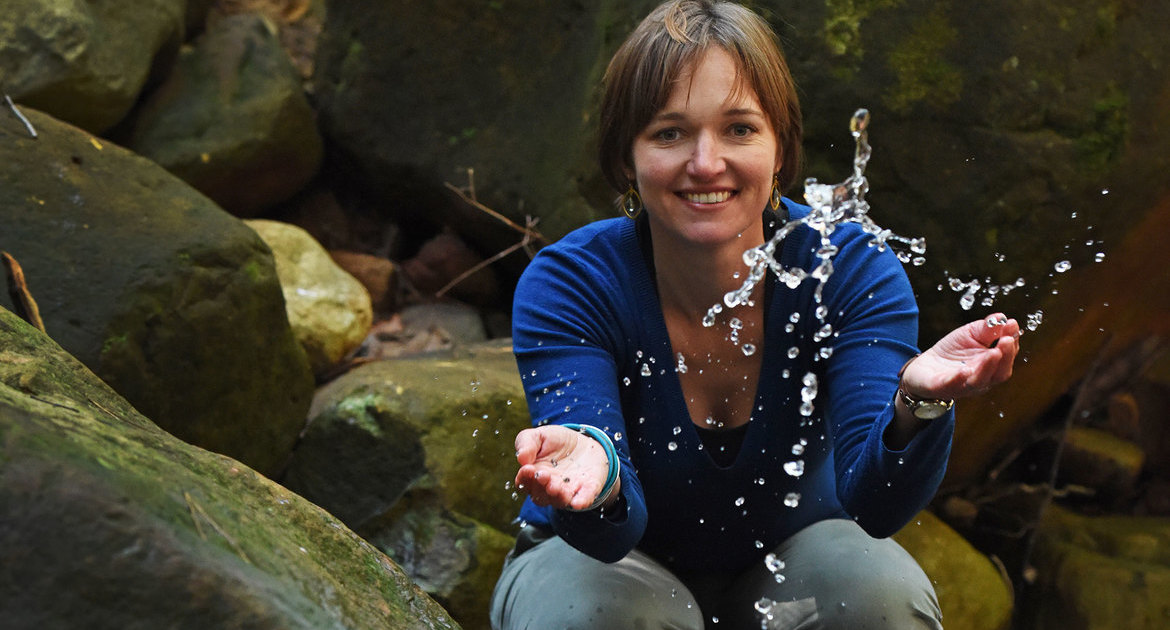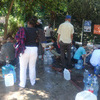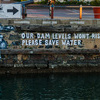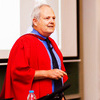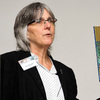Making his ‘first lady’s’ dream come true
05 April 2019 | Story Niémah Davids. Photo Je’nine May. Read time 6 min.
You’re a fresher at university and the world is your oyster. There’s so much at your disposal – city life, free Wi-Fi, new friends and plenty of spare time. No one’s around to instruct you to go to class, study for an exam, or complete an assignment. The days of school demerit systems and strict teachers are gone, and if you’re living in a campus residence, your mom’s nowhere nearby to watch you either.
“But don’t be fooled by the leisures that come with student life. Concentrate on the end goal and not losing your way,” is the advice for first-years from University of Cape Town (UCT) graduand Sanele Mangena.
He was determined to avoid the many distractions that could disrupt his studies, but initially found it tough going. However, thanks to his well-grounded outlook and forward-thinking approach, Mangena will join hundreds of other UCT graduands as they approach the podium to receive their degrees this month.
Proud, and with his head held high, Mangena will graduate with a Bachelor of Commerce degree in economics and finance – and make his mother’s dream come true.
“The time has come. The day will soon be here. I am not lying when I say that it took blood, sweat and tears to get to this point,” he said.
“My mother – my first lady – has been my source of inspiration and I am so grateful to her for everything.”
“My mother – my first lady – has been my source of inspiration and I am so grateful to her for everything.”
A bumpy road
Mangena weathered many storms as a new student, one of them the school-to-university transition which he describes as “a real thing”. While still at school, this maths and physics guru was part of UCT’s 100UP Programme, a Schools Improvement Initiative (SII) that seeks to boost the number of learners from disadvantaged backgrounds who enter the institution. After matric he enrolled to study actuarial science at UCT.
But there were all those distractions... His new world was different to the one he was used to at home in Khayelitsha. Slowly he started losing focus. Mangena said this was evident after his first maths test.
“I loved maths in school and achieving anything below 80% was terrible. It was a knock to my system when I got my results for my first maths test. I didn’t fail but I didn’t do well either,” he recalled.
Mangena plodded along for the next few months, and made it into his second year determined to turn things around. He altered his approach to studying and made focusing on his academics his goal. While his results improved, they were still not where he wanted them to be.
In despair, it took a trip to his curriculum adviser’s office to put things into perspective. At the end of his second year, he swapped his academic programme from actuarial science to a BCom in economics and finance.
Shape up
Changing his degree provided Mangena with a second chance and an opportunity to “shape up”. He prioritised every hour in the day and invested his time wisely. He set goals for every test and assignment, and worked hard at achieving them.
As clichéd as it sounds, Mangena said, hard work really does pay off, and prioritising helps too.
“Prioritising refers to your personal and student life. There needs to be a balance, or you will go insane. But finding that balance is the difficult part.”
When Mangena put in the effort, his results improved accordingly, and on graduation day he will walk off with three distinctions for his academic programme. These results are a stepping stone towards his postgraduate studies, which are already under way. He is completing his honours in financial analysis and portfolio management part-time.
Learning curve
Meanwhile, he’s also secured an internship; Mangena works in the actuarial science department at investment firm Alexander Forbes. He described his new role as somewhat ironic, considering he first enrolled to study actuarial science at UCT.
“I am not an actuary, I am just doing their work during my internship. It hasn’t been long, but I am learning so much,” he said.
Mangena has other plans for his career however. Long-term, he sees himself as a maths teacher at a high school in Khayelitsha to “plough back into the community”.
“I believe in the importance of giving back to the community, and one day I’ll get there and do my bit,” he said.
“I believe in the importance of giving back to the community, and one day I’ll get there and do my bit.”
To grow in his profession, Mangena also plans to write the Chartered Financial Analyst (CFA) board exam in 2020. When he passes, he’ll obtain an international credential offered to investment and financial professionals by the United States-based CFA institute.
None of this would have been possible if he’d continued allowing himself to be side-tracked, he said, urging his fellow students to prioritise keeping their “eye on the prize”.
“Invest enough time in your studies and don’t forget why you came here in the first place. It’s going to be hard, but it will be worth it.”
 This work is licensed under a Creative Commons Attribution-NoDerivatives 4.0 International License.
This work is licensed under a Creative Commons Attribution-NoDerivatives 4.0 International License.
Please view the republishing articles page for more information.
Cape Town water crisis
At UCT our researchers have been analysing the causes of the current drought, monitoring water usage on campus and in the city, and looking for ways to save water while there is still time. As part of UCT’s water-saving campaign, all members of the campus community are encouraged to reduce their water use by half, which will help Cape Town to meet its water-use goals and ensure a water-sustainable university in the future.












